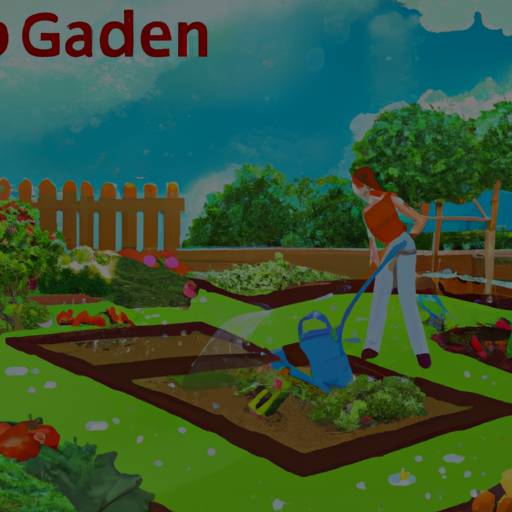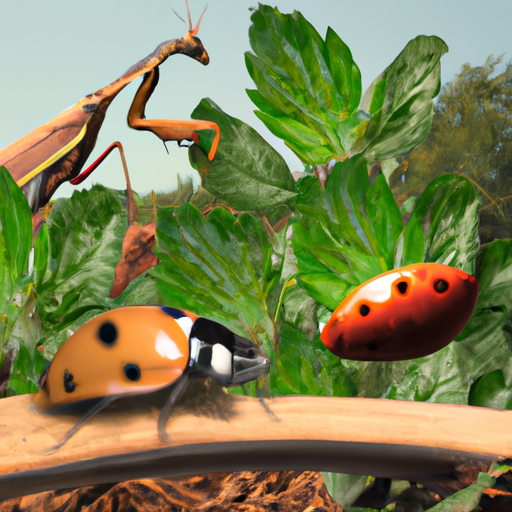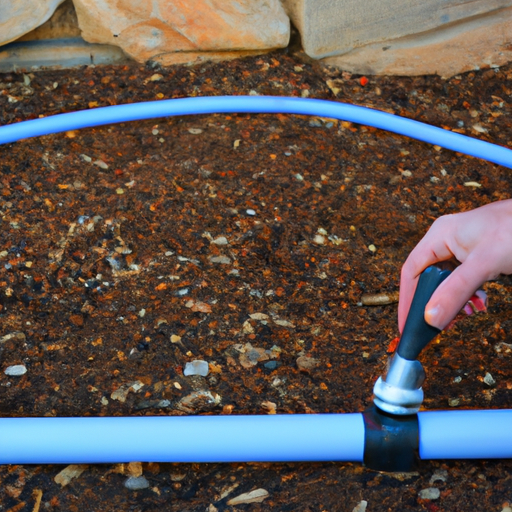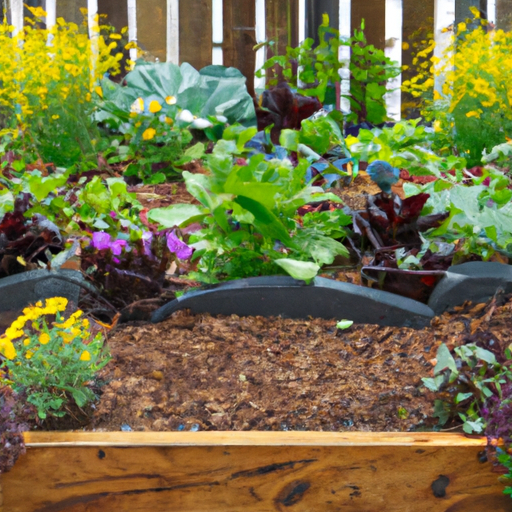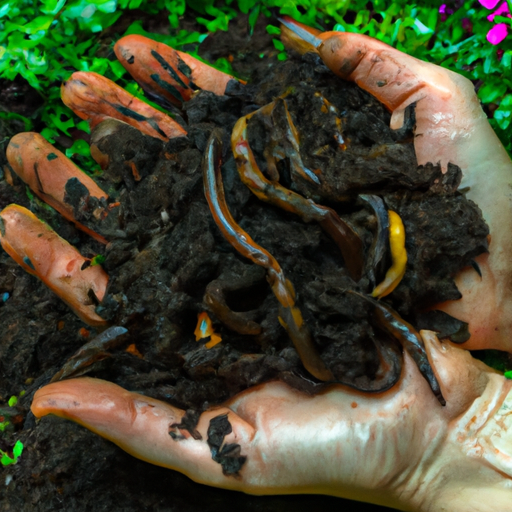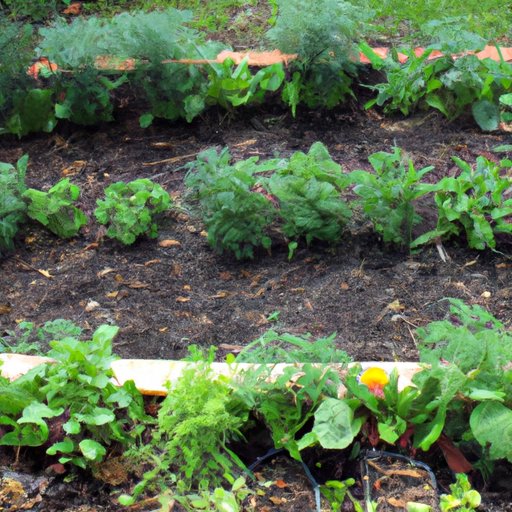Welcome fellow gardeners!
As a Master Gardener, I know firsthand the frustration of dealing with pests in your garden. But fear not, because there are organic solutions to treating these pesky creatures without harming your plants or the environment.
First and foremost, identifying the type of pest is crucial in order to determine the appropriate treatment method. From aphids and caterpillars to slugs and snails, each insect has its own unique characteristics that differentiate it from others.
In this article, we will explore common garden pests and their physical attributes as well as provide tips on how to treat them organically using natural methods such as companion planting and homemade sprays.
So grab your gardening gloves and let’s get started!
Understanding The Importance Of Organic Pest Control
As a Master Gardener, I always emphasize the importance of organic pest control. It’s not just about keeping our gardens healthy and productive; it’s also about protecting our environment from the harmful effects of chemical pesticides.
Organic pest control offers many benefits, including reducing the risk of contaminating our soil and water with toxic chemicals. By using natural methods such as companion planting and beneficial insects, we can manage pests without compromising the health of our plants or ourselves.
So let’s ditch those synthetic pesticides and embrace sustainable gardening practices that promote a healthier ecosystem for all living beings on this planet!
Identifying Aphids And Other Common Garden Pests
As we learned in the previous section, organic pest control is vital for maintaining a healthy and thriving garden. One effective approach to this is Integrated Pest Management (IPM), which involves using a combination of techniques such as crop rotation, companion planting, and natural pesticides.
Another crucial aspect of IPM is encouraging beneficial insects that prey on common pests like aphids, mealybugs, and spider mites. Ladybugs, lacewings, and praying mantises are excellent examples of these helpful creatures that can be attracted to your garden with plants like dill or fennel.
Identifying pests early on is also essential in preventing an infestation from getting out of hand. Aphids are one of the most common garden pests and can be identified by their small size and pear-shaped bodies. Other culprits include whiteflies, thrips, and scale insects.
Once you have determined the type of pest plaguing your garden, there are several organic methods for treatment depending on severity; physical removal through pruning or washing off with water being the least invasive method while still providing significant results. Remember always to take preventive measures before resorting to any form of pesticide – whether homemade or store-bought – as they may harm not just your target insect but other pollinators as well!
Natural Methods For Treating Garden Pests
Did you know that attracting natural predators to your garden can significantly reduce the number of pests?
In fact, a study showed that introducing beneficial insects like ladybugs and lacewings reduced pest populations by up to 80%.
You can attract these predators by planting flowers such as daisies and marigolds or creating habitats for them with things like rock piles and birdhouses.
Another effective organic method is using beneficial nematodes which are microscopic worms that feed on soil-dwelling pests like grubs and root maggots.
These nematodes can be purchased online or at your local gardening store and simply need to be mixed with water before being applied to affected areas.
By incorporating these natural methods into your pest control strategy, not only will you avoid harmful chemicals but also promote a healthy ecosystem in your garden.
Companion Planting For Pest Prevention
As a Master Gardener, I highly recommend incorporating companion planting into your pest prevention strategy.
This technique involves planting different types of plants together that have beneficial relationships with one another, such as repelling pests or attracting beneficial insects.
The benefits of companion planting include reducing the need for pesticides and creating a more diverse and healthy garden ecosystem.
Some examples of successful companion plant combinations are marigolds with tomatoes to deter nematodes, basil with peppers to repel aphids, and nasturtiums with cucumbers to attract predatory insects that feed on cucumber beetles.
By implementing these simple techniques, you can effectively prevent common garden pests without resorting to harmful chemicals.
Diy Pest Control Sprays And Solutions
Now that you know how to prevent pests through companion planting, it’s important to also have a plan in place for when pesky insects do find their way into your garden. Instead of resorting to harmful chemicals, there are plenty of homemade insecticides and non-toxic remedies that can effectively treat common garden pests.
Here are two sub-lists with examples:
– Homemade Insecticides:
– Garlic spray: Mix minced garlic cloves with water and let sit overnight before straining and spraying on plants.
– Neem oil spray: Combine neem oil with water and a small amount of dish soap for an effective pest control solution.
– Non-Toxic Remedies:
– Handpicking: Go out to the garden daily and pick off any visible pests by hand.
– Companion planting herbs: Certain herbs like basil, mint, and rosemary repel common garden pests while attracting beneficial insects.
As a Master Gardener, I highly recommend trying these natural solutions before turning to harsh chemicals. Not only will they protect your plants without harming the environment, but they’ll also save you money in the long run. Remember to always properly identify the pest before applying any treatment and continue monitoring your garden regularly to catch any issues early on.
Frequently Asked Questions
Can Garden Pests Harm Humans Or Pets?
As a Master Gardener, it’s important to consider the potential health risks associated with garden pests.
While many people may assume that these critters pose no threat to humans or pets, there are certainly some misconceptions floating around out there.
For example, some folks believe that simply touching a pest will result in an allergic reaction or illness – but this is generally not the case.
However, certain types of rodents and insects can carry diseases that could be harmful if transmitted to humans or pets through bites or scratches.
To avoid such risks, it’s always best to take precautions when handling any type of pest found in your garden.
How Can I Prevent Garden Pests From Returning?
Just like how a vigilant watchman prevents burglars from entering the house, gardeners must also take necessary steps to prevent pests from returning.
It is essential to remember that prevention is always better than cure when it comes to gardening.
Using natural repellents such as neem oil and garlic spray can work wonders in keeping unwanted visitors at bay.
Companion planting is another technique that helps ward off pest attacks by creating an ecosystem of plants that support each other’s growth while repelling common pests.
As a Master Gardener, I cannot stress enough the importance of regular maintenance and observation for preventing future infestations.
With proper care and attention, your garden can remain healthy and thriving year-round!
Are There Any Plants That Repel Garden Pests Naturally?
Companion planting is a great way to keep pesky insects at bay without having to resort to harmful chemicals.
There are certain plants that naturally repel garden pests, such as marigolds, garlic, and chives. These can be strategically planted around susceptible crops or throughout the entire garden for added protection.
In addition, natural pest repellents like neem oil and diatomaceous earth can also be used to deter unwanted bugs.
By incorporating these methods into your gardening routine, you can create a healthier environment for both your plants and yourself.
What Should I Do If I Accidentally Kill Beneficial Insects While Treating Pests?
Gardening is a delicate dance with nature, and sometimes our steps may accidentally crush the helpful insects that we want to keep around. Preventing accidents in the garden requires mindfulness and attention to detail.
But fear not! Just as we can rehabilitate injured wildlife, we can also help beneficial insects recover from harm. One tip is to provide shelter and food sources for them while they heal.
For example, you could set up a small container filled with damp sand or soil for bees to rest on after being sprayed with water. Or, you could plant native wildflowers near your garden beds to attract ladybugs and lacewings who will happily feast on aphids once they return home healthy again.
Remember, every creature has its role in the ecosystem of your garden – even those tiny ones hiding under leaves!
Can Organic Pest Control Methods Be As Effective As Chemical Pesticides?
Organic vs Chemical: Pros and Cons?
When it comes to pest control, many gardeners debate the use of organic methods versus chemical pesticides. While both have their benefits and drawbacks, there are effective natural pest control methods that can be just as successful as traditional chemicals.
These methods may include using companion planting, implementing physical barriers like row covers or netting, and introducing beneficial insects such as ladybugs or praying mantises to your garden. However, it’s important to note that these approaches require consistent effort and attention throughout the growing season.
Ultimately, whether you choose to go organic or chemical will depend on your personal gardening philosophy and the specific pests you’re dealing with in your garden.
Conclusion
As a Master Gardener, I know firsthand the frustration that comes with discovering garden pests. However, it is important to remember that these critters are not out to harm humans or pets – they simply want to feast on our beloved plants.
To prevent their return, try companion planting and using natural deterrents like garlic spray or diatomaceous earth.
In addition, consider incorporating plants that naturally repel pests into your garden design. Marigolds, basil, and lavender are just a few examples of plants that can help keep unwanted visitors at bay.
And if you accidentally kill off beneficial insects while treating for pests, don’t beat yourself up too much – we’ve all been there! Just take steps to replenish the population by adding compost and other organic matter to your soil.
With a little patience and persistence, organic pest control methods can be just as effective as chemical pesticides – without harming the environment or putting our health at risk. So roll up your sleeves and get ready to tackle those pesky critters in an eco-friendly way!
Your garden (and the planet) will thank you for it.
